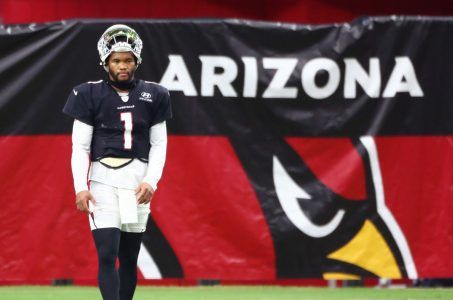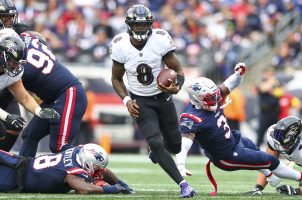Sports Betting Companies Can Now Get Pro Soccer Stadium Naming Rights, Sponsorship Patches on Player Jerseys
Posted on: June 27, 2019, 06:31h.
Last updated on: June 27, 2019, 12:31h.
Major League Soccer (MLS) has become the first US professional major sports conference to allow for paid sponsorships from sports betting and liquor companies.

It means these types of businesses can now name soccer stadiums used by the league’s 24 teams. Or, they can have company patches placed on players’ uniforms.
The new MLS policy goes into effect immediately, having been approved on Wednesday, Fortune reported. The initiative could be followed by similar moves by other pro conferences such as: the National Football League, National Basketball Association, Major League Baseball, and the National Hockey League.
Since 2017, the NBA allowed limited sponsorship patches on uniforms. Fortune magazine reports the NFL, MLB and NHL may permit similar changes.
Specifically, MLS will permit sports betting companies to advertise in stadiums or put ads on broadcasts of soccer games. They can also use team logos in ads.
The teams additionally can present programs that deal with wagering topics, such as on odds. MLS teams can also open sports betting venues in stadiums — with licensed operators — if allowed by local and state law, Fortune reported.
“We want to … provide our clubs with an appropriate level of flexibility,” Carter Ladd, senior vice president of business development at MLS, was quoted by the magazine. “We strongly believe this is going to help drive new revenues…. Right now, we want to take advantage of the widespread legalization of sports betting in the US.”
The initiative follows an announcement in March that MLS named MGM Resorts International as its first official gaming partner. Roar Digital, a joint venture between MGM and GVC Holdings, was also named the sports betting partner of MLS.
Sensitivity to Young Soccer Fans
Given concerns about age-appropriate marketing, MLS will prohibit such patches from gambling companies put on youth-sized jerseys. The patches will not be found on uniforms given to any MLS academy or youth players.
No MLS players are permitted to appear in sports betting ads or marketing materials, the report further said.
The problem is not about the partnership,” James P. Whelan, co-director of the University of Memphis’ Institute for Gambling Education and Research, told Casino.org when asked about the MLS move. “It is about the regulations and the educational messages about potential risks.”
People should be free to choose, but they need to be appropriately informed about the risks and there needs to be the appropriate safeguards for adolescents,” he added.
As far as those with gambling problems placing bets during a game, Whelan said there “is not any science to inform us about the potential risks.”
Capital One Arena Sportsbook
One instance of forthcoming in-stadium sports betting is at Capital One Arena. It will have its own onsite sports book when Washington, DC launches sports betting starting in September.
Monumental Sports owns the stadium. It is home to the Washington Capitals, Washington Wizards, Washington Valor and Washington Mystics.
The Rev. Richard McGowan, a finance professor at Boston College who has extensively researched the subject of gambling, told Casino.org, “It certainly seems that is the way professional sports is going.”
“If online sports betting is legalized then you would also have in-game betting,” McGowan said. “In soccer, who would score the first goal or which team will receive a red card. All sorts of bets could be placed while you are watching the game at the stadium.”
Several states unfurled sports betting last year after the US Supreme Court in May rejected a ban that had been put into place by the Professional and Amateur Sports Protection Act (PAPSA) in 1992.
Related News Articles
Kansas City Chiefs NFL Betting Preview: Ready to Repeat
Arizona Cardinals NFL Betting Preview: A Championship Desert
2022 NFL MVP: Lamar Jackson Odds Boost After Torrid Start
Most Popular
Robinhood CEO Says Broker is Examining Sports Betting
Caesars Virginia in Danville Delays $750M Casino Resort Opening
NEXT YEAR AT VEGAS SPHERE: James Dolan on What to Expect
Most Commented
-
Caesars Virginia in Danville Now Accepting Hotel Room Reservations
— November 27, 2024 — 8 Comments -
VEGAS MYTHS RE-BUSTED: Casinos Pump in Extra Oxygen
— November 15, 2024 — 5 Comments -
LOST VEGAS: The Historic Holy Cow Casino
— November 29, 2024 — 4 Comments
















No comments yet